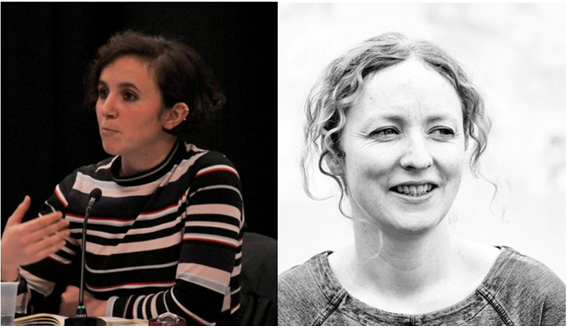Seminar: ‘Migration, Affect and Political Space’
‘Migration, Affect and Political Space’
An International Political Sociology and Geography Seminar
Researchers are organising a seminar for PhD students and early-career researchers working at the intersections between IPS and Geography on 9 October 2019, 10.30-17.30, at Goldsmiths University London. Places are free but delegates must register.
Speakers: Claudia Aradau, Angharad Closs Stephens, Jason Dittmer, Jef Huysmans, Debbie Lisle, Patricia Noxolo (tbc), Rahul Rao, Martina Tazzioli
Chairs: Brenna Bhandar, David Brenner, Sanjay Seth
Convenors: Angharad Closs Stephens (Swansea University) and Martina Tazzioli (Goldsmiths)
Against a backdrop of heightened attention to borders and those who cross them, as well as to the emotions, tones, moods and gestures of political life, this seminar seeks to address the politics of migration and affect together. It arises from our suspicion that current practices of governance––of sorting, categorising, counting and expelling lives, need to be addressed alongside questions about the politics of knowledge and the poetics of style. This seminar will bring together debates, contributions and methodological approaches in International Political Sociology and Geography and explore different ways of addressing questions about affect (as the capacity to move and be moved, as well as ways of orienting ourselves in the world) together with migration (addressing movement, boundaries, mobilization, crossings and borders).
In mobilizing affect and migration as analytical lenses, we are interested in developing other entry points for responding to ‘populist’ times – of heightened racism, far-right nationalism, the fortification of borders and the purification of ideas about identity and citizenship: we want to ask, for example, how we might respond to these urgent times beyond a language of catastrophe and without reproducing some of the sovereign terms, categories and dreams that are currently being reenergized? How, in taking affect and migration as opening provocations, might we uncover alternative entry points to thinking political space, collective movements and ways of writing about politics? Given the limits of returning to organize around the categories of ‘the people’, ‘class’, and ‘identity’, what other understandings of collective formations, political movements and political space might we develop? And given the ways in which calls for truth, evidence or a non-emotional politics seems to miss many of the central ways in which populist movements work, how do we experiment with forms of academic writing and intervening politically that are not premised on imparting certainties?
The seminar will loosely be divided into three sessions, with one focusing on migration, movement and collective subjects; the other focused on affect, community and materiality; and the final session focused on the politics of knowledge, non-knowledge and attunement. The sessions will include short academic presentations by the invited speakers and time for broad conversation and discussion.
Possible questions will include:
What are the histories of addressing questions of emotion, mood and affect in world politics and how might we understand this current turn in historical context? In which ways might work around affect and emotion be mobilised in the study of migration? What are the spatial geographies of work around affect and emotion?
How do we better attune to concrete practices in international relations alongside theoretical reflection, in a way that is attentive to the limits of both description and abstraction? How might we combine a study of global politics that begins with people, creatures, objects, materials and elements that are on the move with an affective style that is capable of awakening? How do we best consider the methods of assembling knowledge and of establishing validity in populist times?
What alternative understandings of political space might emerge from the lens of migration/mobility and affect/movement as constitutive components of politics? How do we rethink space by taking mobility and movement as methodological starting points?
How are mobilising evidence and mobilising emotions/affects emerging as key modes of critical intervention at the current juncture and what is at stake in these framings? How does addressing migration and affect together rework our understandings of sovereignty, community and political space?
With the support of: Centre for Postcolonial Studies (Goldsmiths); Political Economy Research Centre (Goldsmiths); Doing IPS Research Hub; London Interdisciplinary Social Science Doctoral Training Partnership.
For more information please contact either Angharad Closs Stephens or Martina Tazzioli (a.c.stephens@swansea.ac.uk or martina.tazzioli@gold.ac.uk).

